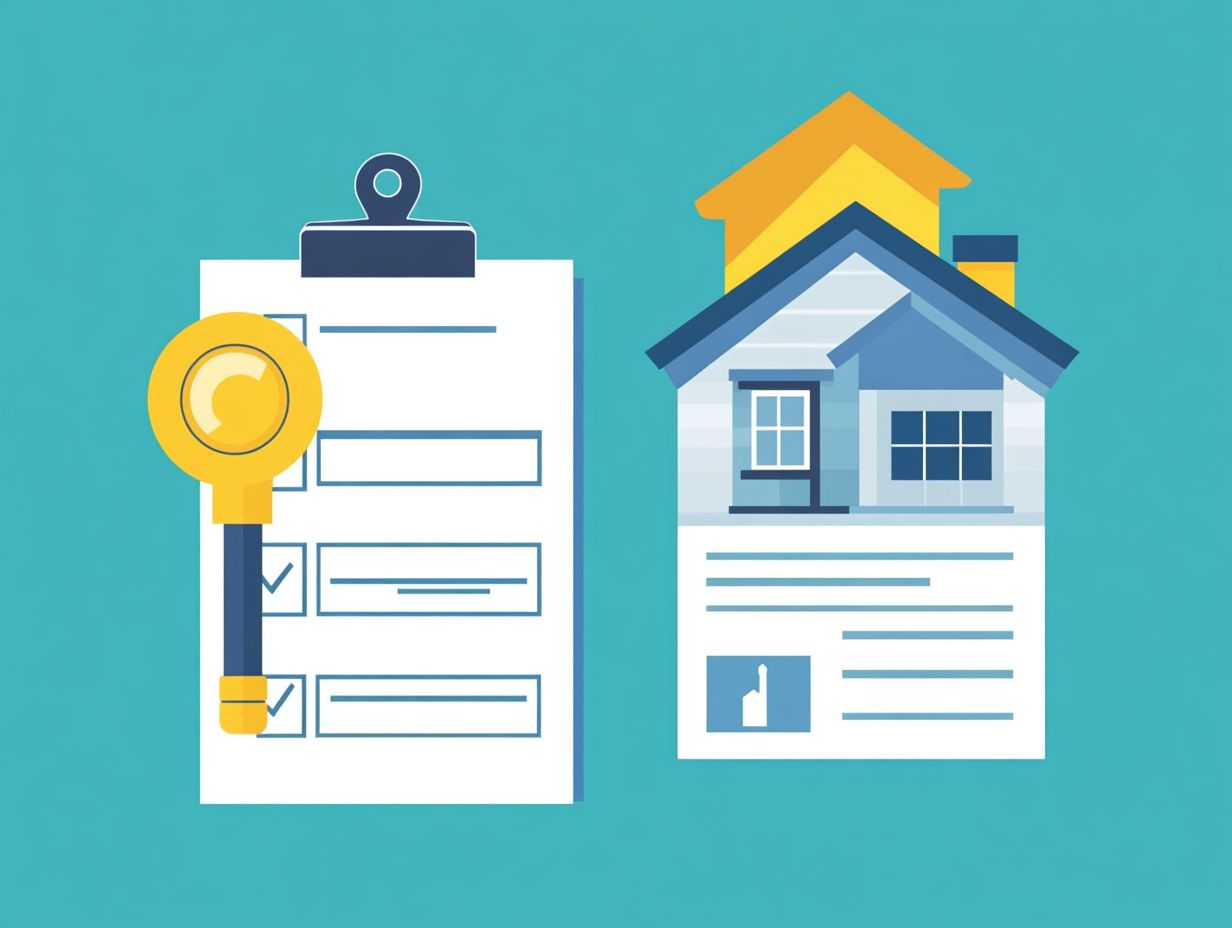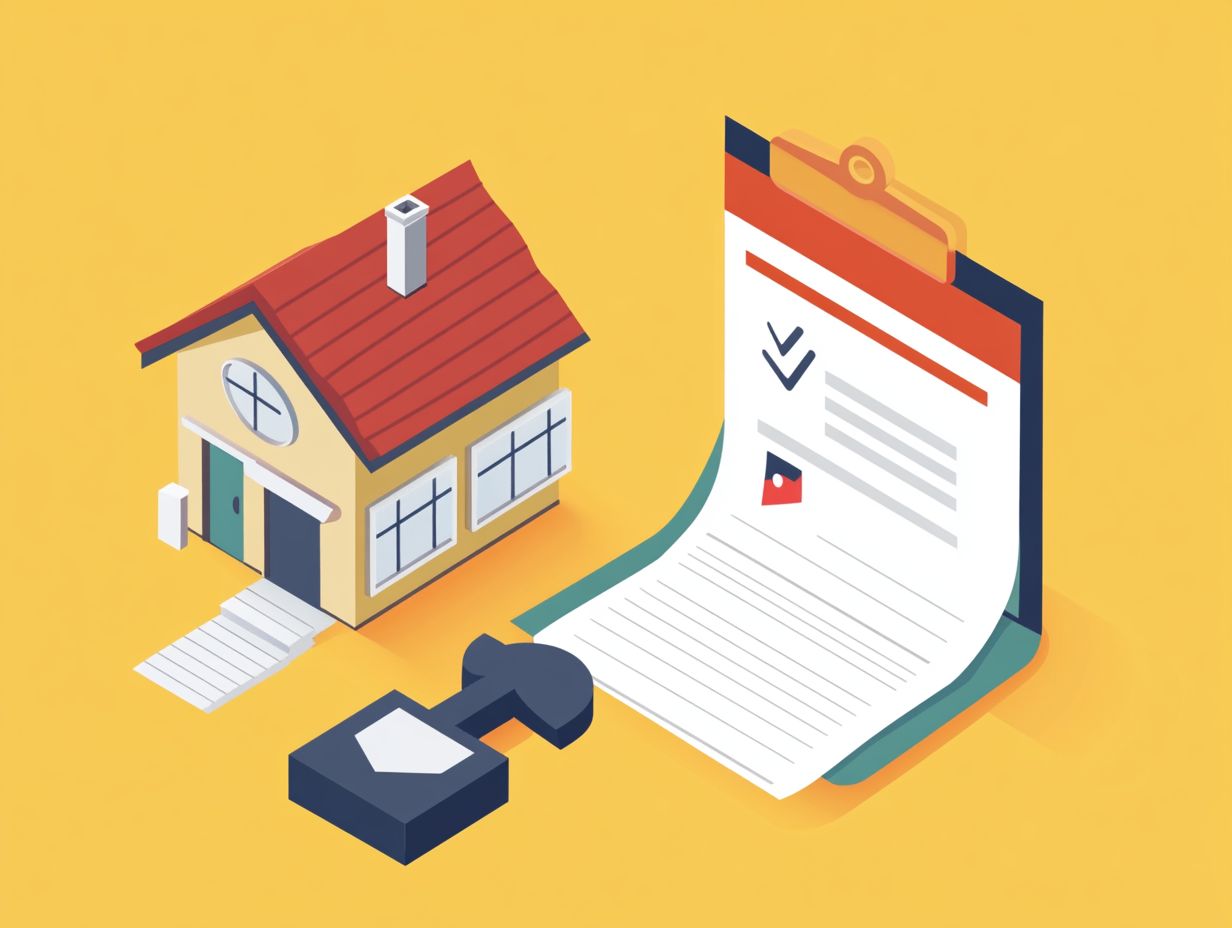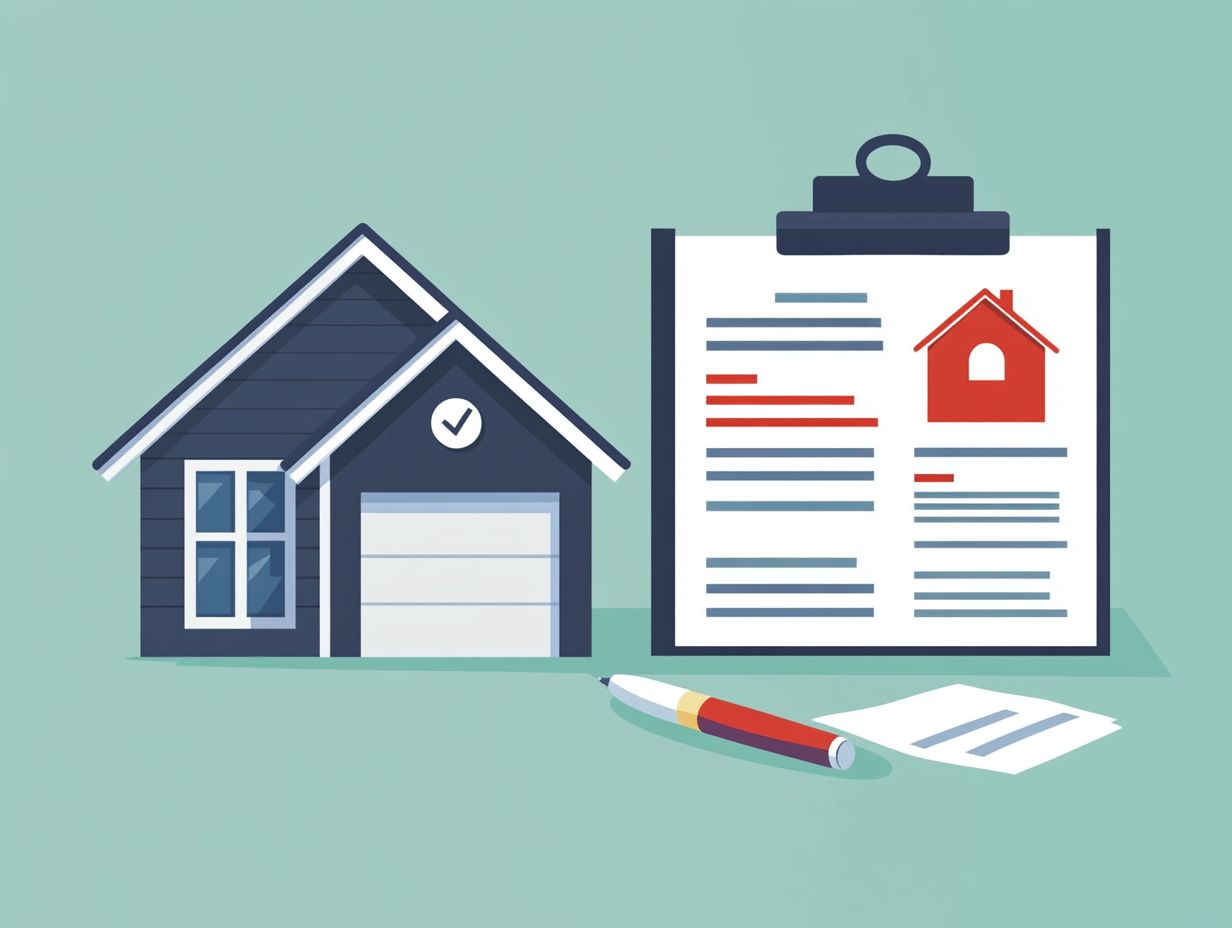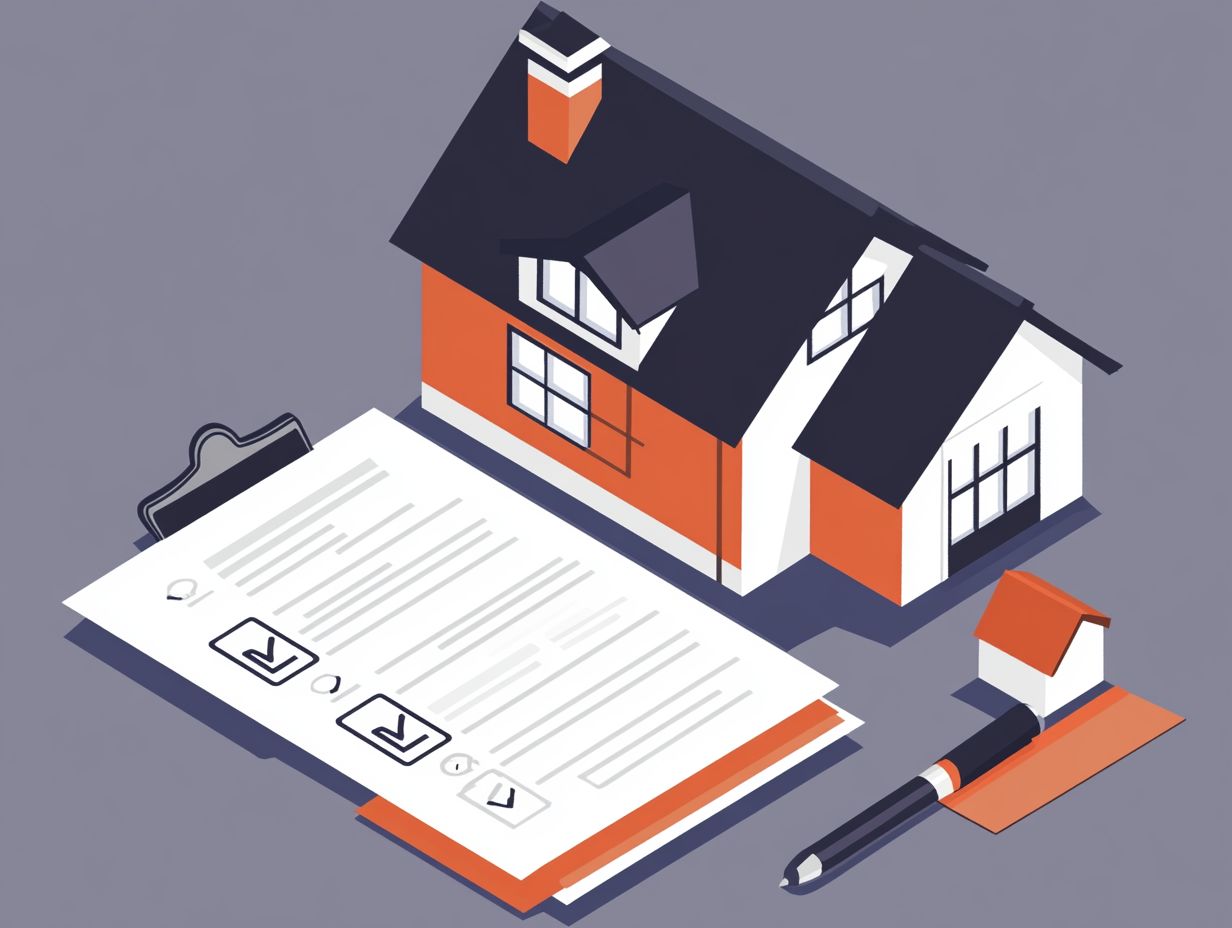Understanding the Difference Between Pre-Qualification and Pre-Approval
Navigating the world of mortgages can feel overwhelming, especially when it comes to understanding the essential steps of pre-qualification and pre-approval.
While these terms are often used interchangeably, they serve different purposes in your home-buying journey.
This article will clarify what pre-qualification and pre-approval truly entail, highlight their key differences, and outline their respective benefits.
By the end, you ll be ready to take charge of your home-buying journey!
Contents
Key Takeaways:

- Pre-qualification is an initial step that provides a rough estimate of how much you can borrow.
- Pre-approval is a more thorough evaluation that results in a specific loan amount.
- Pre-approval requires more documentation and indicates a higher level of commitment from the lender.
- Both processes can save you time and strengthen your offers when shopping for a home.
The Basics of Mortgage Pre-Qualification and Pre-Approval
Understanding the nuances of mortgage pre-qualification and pre-approval is vital for you as a homebuyer navigating the intricate financial landscape of purchasing a home.
These two processes are crucial steps in securing a mortgage, offering valuable insights into your financial standing and eligibility.
Pre-qualification provides a preliminary assessment based on the financial information you tell the lender, while pre-approval involves a more detailed evaluation, including documentation and credit checks.
Going through both processes equips you with the knowledge needed to make informed financial decisions and negotiate confidently in the housing market.
What is Pre-Qualification?
Pre-qualification is your first step in the mortgage journey. It gives you a ballpark figure of how much you might be able to borrow based on your financial situation.
This phase is essential for assessing your overall eligibility and requires you to share key financial information.
Typical documentation includes income statements, debt information, and your credit history, which help lenders assess the risk of lending to you.
Once this information is analyzed, lenders can issue a prequalification letter, a valuable asset for you as a prospective homebuyer. This letter outlines your general borrowing limit and strengthens your position when making an offer, signaling seriousness to sellers in a competitive market.
What is Pre-Approval?

Pre-approval is a crucial step in your mortgage journey. During this stage, lenders closely review your financial information and issue a conditional approval indicating how much they re willing to lend you.
You ll need to provide extensive documentation, including income verification, employment history, tax returns, and credit reports. Lenders dive deep into these documents to evaluate your creditworthiness and ensure you can manage mortgage payments responsibly.
The pre-approval letter that emerges from this thorough process not only outlines your financial framework but also enhances your credibility with sellers. In a competitive market, showcasing your financial readiness with this letter can give you a distinct advantage, helping your offers stand out.
Key Differences Between Pre-Qualification and Pre-Approval
Understanding the key differences between pre-qualification and pre-approval is essential, as they significantly influence your home buying journey.
Pre-qualification is typically a straightforward process based on the self-reported financial information you provide. In contrast, pre-approval demands comprehensive documentation and a more formal assessment by the lender.
This distinction alters the level of commitment you can expect from lenders and determines the strength of the approval letter you can present to sellers. This can be a game-changer in negotiations and offers, especially in a competitive housing market.
Criteria for Pre-Qualification vs. Pre-Approval
The criteria for pre-qualification and pre-approval differ significantly, influencing how lenders evaluate your financial situation and potential loan eligibility.
When you seek pre-qualification, the process relies heavily on self-reported information about your income, assets, and debt. This allows you to quickly gauge your loan possibilities without diving too deep.
On the other hand, pre-approval requires a much more thorough approach. You ll need to provide detailed paperwork, including verified income statements, tax returns, and financial disclosures. During this phase, expect a hard credit check, which is a thorough review of your credit history, to assess your creditworthiness, giving lenders a clearer snapshot of your financial health.
Understanding these distinctions enables you to navigate the lending landscape with greater confidence, ensuring you re fully prepared for each stage of securing a mortgage.
Level of Commitment from Lender

The level of commitment you receive from lenders varies significantly between pre-qualification and pre-approval, playing a crucial role in how effectively you navigate the home buying process.
When you obtain a pre-approval, it not only enhances your standing in the housing market but also signals to sellers that you are serious and financially prepared. This assurance can put you in a more advantageous position during negotiations, as sellers often prefer offers backed by a lender’s confidence in your financial stability.
The commitment shown during pre-approval can unlock better financing options and lower interest rates for you. This ultimately influences the long-term affordability of your new home.
Benefits of Pre-Qualification and Pre-Approval
The advantages of pre-qualification and pre-approval go far beyond mere estimates; they offer homebuyers a refined approach to the home buying journey while illuminating their financial landscape.
Embracing these steps not only bolsters your confidence regarding your budget and eligibility but also establishes you as a formidable contender in a competitive housing market.
By securing pre-approval, you gain access to more favorable interest rates and a clearer picture of your loan amount, giving you the power to make informed financial decisions as you evaluate offers and commitments from lenders.
Streamlining the Home Buying Process
Streamlining the home buying process is one of the major advantages of obtaining pre-qualification and pre-approval, making it much easier for you to navigate your mortgage options.
When you secure these steps early in your journey, you not only gain a clearer understanding of your budget, but you also position yourself as a serious contender in the eyes of sellers. Taking these steps helps you communicate effectively with lenders and sellers, building trust and clarity.
With a pre-approval letter in hand detailing your financing capabilities, you ll feel empowered to make informed financial decisions. With this confidence, you can negotiate faster and achieve better terms, ultimately resulting in a smoother and more satisfying home buying experience.
Understanding Your Budget and Options

Knowing your budget and options is key to a successful home buying adventure! Both pre-qualification and pre-approval shed light on potential loan amounts and interest rates.
These processes give you as a prospective homeowner the ability to evaluate your financial capabilities more thoroughly, allowing for informed decisions. By examining your income, savings, and credit scores, you can construct a realistic budget that truly reflects your purchasing power.
Utilizing budgeting techniques like the 50/30/20 rule enables you to allocate funds wisely across essential expenses, personal desires, and savings. With pre-approval, you gain a clearer understanding of the implications of various loan amounts and interest rates, which can significantly influence your monthly payments and long-term financial commitments.
This clarity ultimately paves the way for a smoother and more confident home buying experience.
When to Get Pre-Qualified vs. Pre-Approved
Understanding the distinction between getting pre-qualified and pre-approved is crucial for you as a prospective homebuyer. The timing of each step can profoundly influence your home buying experience and financial decisions.
Pre-qualification usually serves as the initial step, perfect for those in the exploratory phase. Pre-approval is the process where a lender checks your financial background to confirm how much they can lend you when you’re ready to make a serious offer.
By grasping these timelines, you can synchronize your financial strategies with the competitive landscape of the housing market. This ensures you’re well-prepared to engage effectively with sellers.
Timing and Importance of Each Step
The timing and significance of pre-qualification and pre-approval can truly shape your experience in the housing market. Understanding these stages is vital not just for securing financing, but also for a smoother journey toward homeownership.
Pre-qualification typically comes first and is often a quick process, requiring just a few key financial details. It offers you a rough estimate of how much you might be able to borrow.
Pre-approval digs deeper; it involves submitting a formal application and verifying financial documents. This can take anywhere from days to weeks.
These differences in timelines can significantly impact your negotiating power. Factors like credit scores, income stability, and current debt levels play essential roles in determining how swiftly you can transition from pre-qualification to the more stringent pre-approval stage.
Watch this video to learn more about the differences between pre-qualification and pre-approval.
Frequently Asked Questions
What is the difference between pre-qualification and pre-approval?
Pre-qualification is an initial step where a lender estimates how much you can borrow based on the information you provide. Pre-approval is a more thorough process where a lender verifies your financial information and determines the specific loan amount you qualify for.
What is the main benefit of getting pre-qualified?
Getting pre-qualified can give you an idea of how much you can afford and help you narrow down your home search. It is a quick and easy way to get a general idea of your buying power.
What is the main benefit of getting pre-approved?
Being pre-approved can give you a powerful advantage over other buyers! It shows sellers that you are a serious and qualified buyer, which can help you stand out in a competitive market.
Is pre-qualification a guarantee that I will get a loan?
No, pre-qualification does not guarantee that you will be approved for a loan. It is based on the information you provide and does not include a thorough examination of your credit report or income verification.
Is pre-approval a guarantee that I will get a loan?
While pre-approval is a more thorough process, it is still not a guarantee that you will be approved for a loan. The final decision will depend on factors such as the property appraisal and any changes in your financial situation.
Which should I get first, pre-qualification or pre-approval?
It is recommended to get pre-qualified first, as it is a simpler and faster process. Pre-approval should follow once you have found a specific property you are interested in, as it requires more time and documentation.





